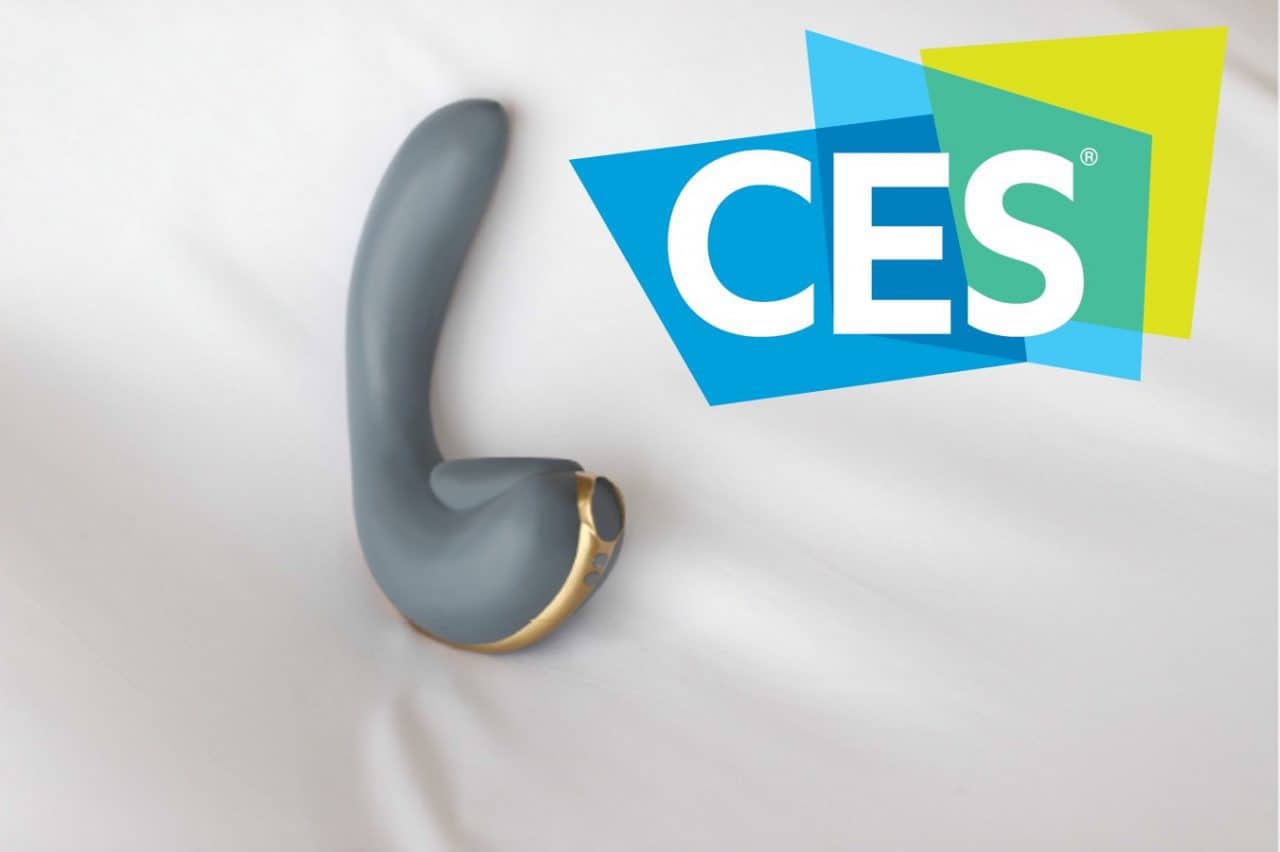As the show floor opens up to the public, and any sensible journalist has long-since left the convention center, the Consumer Electronics Show’s organizational body, the CTA, is left with questions about how to approach sextech at its future events.
This year, the usual selectively applied show criteria prevented some companies that wanted to attend – as seen in previous years – but the event managed to make things even worse in 2019 by rescinding an award issued to the Lora DiCarlo robotic massager, and then changing the reason it gave for the decision.

On one hand, the CTA has a pretty clear position for CES: it’s not a place for overt discussions of sex or sexuality – its rules prohibit “the showing of film, photos, games or other software in the exhibit area which are deemed objectionable, including explicit or simulated sex, nudity or violence – but it is a place where people, mostly men, can try VR porn at Naughty America‘s booth.
In the past, it has struggled with headlines about ‘booth babes’ at the event, so it has taken steps to reduce the number (they’re all independently hired by companies attending, not the CTA), but as noted by Cult of Mac, that’s simply meant they’re now wearing fitness gear instead of mini-skirts. Sex and sexuality aren’t going away as topics, and nor is tech, so the CTA’s continued insistence that there’s no adult category at the show is one that will continual to look increasingly dated over time.
To take the CTA’s position, it argues that it’s simply not a show for adult products – that was, and is again, served by the AVN tradeshow, which also takes place in Vegas. CES’ high-profile nature also means that it’s hijacked at unofficial side-events, such as last year’s robot stripper demonstration, which took place a long way away from the show floor.
It’s just hard to maintain that position, when you also allow devices from companies like OhMiBod into the show. There’s no wrongdoing on OhMiBod’s part, but it must be frustrating for the many fledgling sextech businesses that would likely benefit from attending (and receiving some attention as a result) to have such seemingly selective application of rules.
It was actually OhMiBod’s ninth year at CES with the release of its remote App for the Apple Watch, which allows partners to connect to and control each other’s pleasure products from anywhere in the world.
Founders, Suki and Brian Dunham, explain that they have not experienced any difficulty showcasing at CES because they are “a female-friendly and sex-positive brand.”
They use words like ‘pleasure product’ to describe their tech instead of ‘sex toy’ and present themselves “appropriately.”
That, however, is unlikely to be the reason other companies struggle to attend mainstream shows such as CES – companies like MysteryVibe and Lioness, to name just two, would have a similarly positive and inclusive tone, but still can’t make it onto the main show floor.
“We have been working on participating in CES in a larger way for a few years now. We’re thrilled to be a part of the Showstoppers event, and it will be an amazing opportunity to meet some wonderful people and get the word out about our most recent innovation, Tenuto,” MysteryVibe’s co-founder and CEO Soumyadip Rakshit, told SEXTECHGUIDE. “Of course, in the years to come, we hope that sexual wellness tech companies are able to join the companies on the main floor and partake in the conference in a more significant way. We were the pioneers who introduced the category of sextech to the other big Consumer Electronics expos and we hope to do the same with CES in the near future. ”
CES’ challenge is how to present sextech in a respectable, fair way for exhibitors – and an informative, safe way for attendees, but it’s one the CTA doesn’t seem to have a lot of interest in tackling. Why bother when the AVN expo exists for the adult industry?
Because many sextech companies feel closer aligned with the tech industry than the adult industry, and as such a huge opportunity is being missed – both as a business, and as way to further the discussion around sexual wellness for consumer benefit.
Until the CTA finds a way to navigate these discussions, CES will remain one of the largest tech shows to pretty much pretend sex doesn’t exist.
Read Next: Sex robot symposium exploring ‘erobotics’ planned for May






Leave a Reply